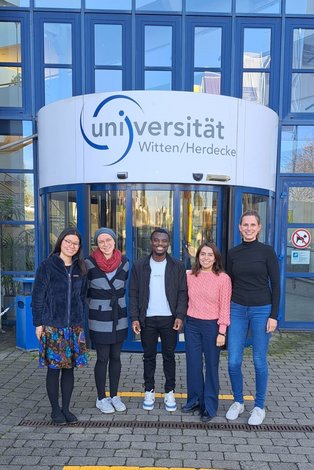International Children's Rights Day: How UW/H is drawing attention to a globally relevant topic
Today, November 20, is International Children's Rights Day - a topic that also concerns us at UW/H. From now on, the Friede Springer Endowed Chair team will be offering a two-week Master's course on justice and children's rights at our university every year. In the first session in October this year, experts from sub-Saharan Africa, the UK and Germany highlighted the intersections of human rights, justice, child health and their social determinants in discussions and lectures. The international students from the Royal Tropical Institute (KIT) in Amsterdam and the Swiss Tropical and Public Health Institute (Swiss TPH) in Basel interpreted the details of the Convention on the Rights of the Child on health and applied them to various health problems. Practical case studies illustrated global inequalities in health care; on this basis, participants discussed strategies to help promote equity so that every child can reach their full potential.
The next master's course is planned for October 2025. In addition to this course, two other courses will be offered: 'Policy and practice of global child health' and 'Non-physician health care workers: leading change in global health'. Link to the courses with more details: https://troped.org/advanced-search/?Q=Y&F19=%3DGermany+-+Witten%2FHerdecke+University%2C+Witten&RP=5&SR=0.
Background
Human rights have moved us for centuries. In the past, however, entire population groups were excluded from these rights. Moreover, the focus was more on obligations towards the community; the right of the individual was given less consideration. The idea of state responsibility and accountability developed only gradually. After the end of the Second World War, the United Nations (UN) was founded with the aim of promoting peace, human development and a better standard of living. The resulting Universal Declaration of Human Rights (UDHR) of 1948 committed states to recognizing a universal standard of rights - including the right to health. A comprehensive set of rules emerged, which was also followed by many human rights instruments in the area of children's rights. For example, in the first paragraph of Article 24 of the 1989 UN Convention on the Rights of the Child, the States Parties recognize "the right of the child to the enjoyment of the highest attainable standard of health and to benefit from facilities for the treatment of illness and rehabilitation of health" and "shall endeavour to ensure that no child is deprived of the right of access to such health services".
